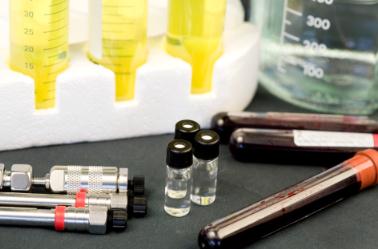A new drug-resistant form of gonorrhea that’s recently been reported in Toronto is particularly prevalent in the gay and MSM (men who have sex with men) community, the lead researcher on the report acknowledges.
Gonorrhea is a sexually transmitted disease that can cause pain and discomfort and if left untreated can lead to more severe long-term health consequences, including infertility and heart problems. It can be contracted in the genitals, throat or rectum and can spread to other parts of the body.
Until recently, gonorrhea was treated easily through a course of oral antibiotics. But doctors and researchers are increasingly finding the bacteria resistant to more and more types of antibiotics.
Now doctors around the world are finding that the bacteria is developing resistance to the last oral antibiotic available, a drug called cefixime.
Vanessa Allen, a researcher at Public Health Ontario who’s studied the disease in Toronto, found a large pool of study candidates at the Hassle Free Clinic, which is used by many gay men and men who have sex with men. Her research proves that drug-resistant gonorrhea has established itself in Toronto, particularly in the gay and MSM community.
“The study was made possible because of the Hassle Free Clinic,” she says. “Their ultimate dedication to going beyond the normal paths to take care of the community helped. They asked people if they know people who have gonorrhea to come back for testing. That’s not a common practice worldwide.”
Jane Greer, a counsellor at the Hassle Free Clinic, says the clinic has been seeing cases of drug-resistant gonorrhea for at least three years.
“We were seeing it before it was widely acknowledged in the gay and MSM community,” she says. “It’s real.
“When we were using oral cefixime, we were seeing failures particularly with rectal and throat infections. It’s been part of our practice for years to do tests of cure, and we bring people back and do swabs. We do cultures instead of just the urine test,” Greer says.
Allen was able to prove that at least 6.7 percent of people who were treated for gonorrhea at the clinic using oral cefixime were not cured. That number may be higher, because less than half the individuals treated for gonorrhea during the study period returned for repeat testing. But bacterial cultures taken from Hassle Free clients indicated that more than 20 percent of cases involved bacteria with decreased susceptibility to the drug.
Allen wants the standards of care to be updated so that patients are treated with an injection of the stronger drug ceftriaxone.
“We’re proposing that ceftriaxone is recommended because if given the pills, up to 25 percent of the patients would fail,” Allen says.
Although ceftriaxone would be more effective against the gonorrhea, there is some worry that this could complicate treatment in clinics that don’t routinely stock the drug, requiring patients to make return visits or find another doctor.
Some patients may also resist treatments that involve needles.
Allen says that the medical community needs new long-term strategies for treating gonorrhea, including research into new drugs.
“Another strategy is giving people point-of-care tests: are there tests that could tell you which treatment is best – could we give you the pill?” she asks.
She also notes that there have been promising developments in research that could lead to a vaccine for gonorrhea.
The Hassle Free Clinic already treats gonorrhea patients with injected ceftriaxone and oral azithromycin. The clinic also treats clients who have had sexual contact with gonorrhea patients on spec while performing lab cultures.


 Why you can trust Xtra
Why you can trust Xtra


